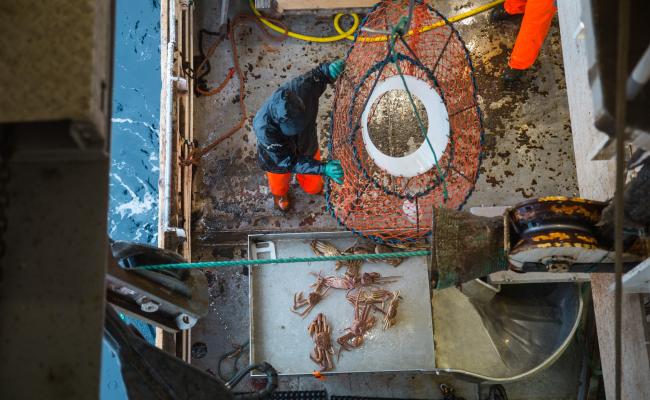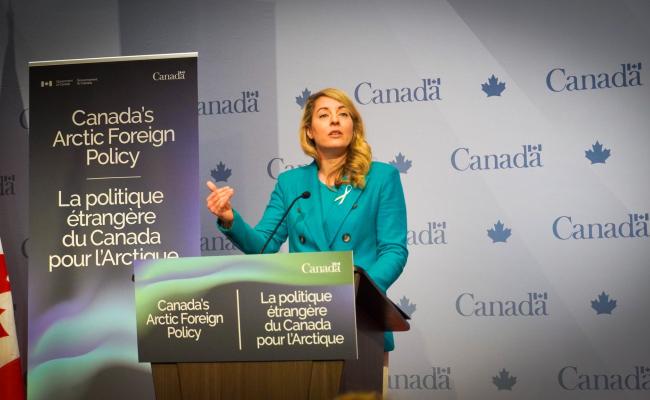How Trump's Looming Tariffs May Impact Canada's Arctic
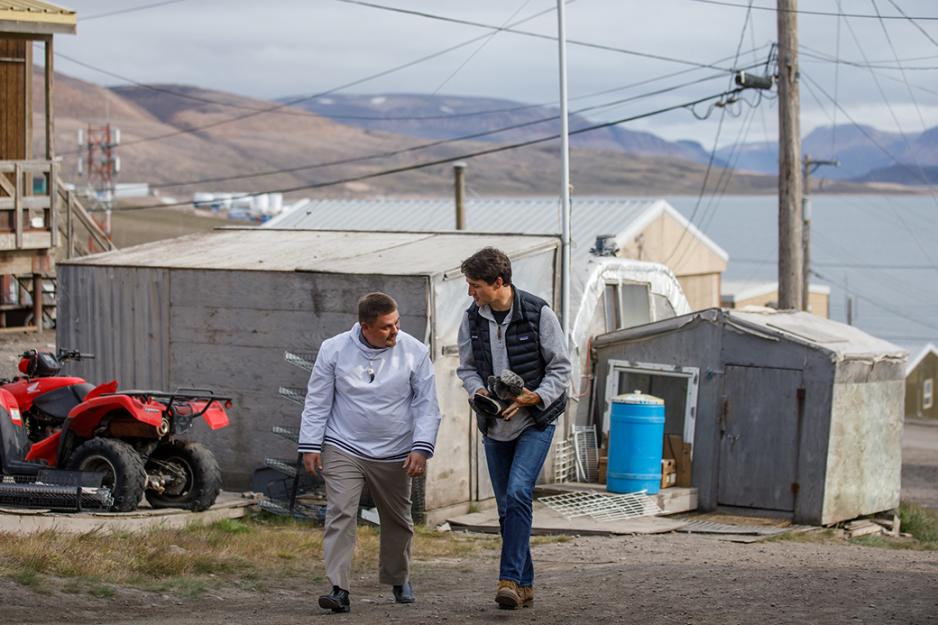
Premier of Nunavut P.J. Akeeagok and Prime Minister of Canada Justin Trudeau during a visit to Arctic Bay, Nunavut in Northern Canada. (Photo: Adam Scotti / Prime Minister's Office).
Premiers of the territories of Northern Canada call for more investment in the North as a response to potential US tariffs. Mining company Baffinland in Nunavut raises concerns about the impacts that countervailing tariffs may have on operations, communities and on the workforce.
On Monday, US President Donald Trump agreed to pause tariffs on goods from Canada and Mexico for 30 days as the two countries made promises to bolster border security, taking steps to address Trump's concerns about fentanyl trafficking.
The proposed tariffs consisted of 25 percent duties on imports from the neighboring countries, except a lower ten percent tariff on energy products from Canada.
In Canada's vast Arctic regions, officials have made clear the impact that a trade war between the US and Canada would have on the territories in the Canadian North.
Does not resolve the uncertainty

"We must take this as a wake-up call to strengthen our own economy by prioritizing purchases that are made locally or in Canada," says Yukon Premier Ranj Pillai. (Photo: Government of Yukon).
Ranj Pillai, Premier of Yukon, which borders Alaska in the west, says the recent US tariff delay is a step in the right direction.
The premier noted however that Yukon businesses and communities cannot plan for the future under the constant uncertainty of potential trade barriers.
“While today’s news was positive, it does not resolve the uncertainty facing Yukon workers, businesses and communities. Here in the Yukon, our economy depends on fair and predictable trade with American partners," Pillai said in a statement.
"These tariffs – if and when they come into effect – threaten jobs, increase costs for families and disrupt supply chains that have benefited both sides of the border, for decades."
Impacting the cost of living
In a post on social media on Saturday, Premier P.J. Akeeagok of Nunavut, stressed that tariffs may particularly impact the cost of living.
"Nunavummiut [inhabitants of Nunavut, ed. note] are faced with the highest costs of living in Canada, as almost all our goods are flown in from southern jurisdictions," Akeeagok said.

Premier of Nunavut P.J. Akeeagok. (Photo: Governement of Nunavut).
"These tariffs will inevitably put more pressure on families already struggling to pay the rent and feed their children. The tariffs may also impact the cost of building homes and our ability to address our housing crisis."
Less exposed, but will feel ripple effects
In an interview with CBC, the Yukon premier noted that the three territories do not have the same level of exposure as provinces do, but listed some of the Yukon industries that could be hit by tariffs.
"We have folks here that build products for housing and building like Northerm [Windows and Doors] that have subsidiaries in Alaska. We have Hecla [Mining Company], which is exporting materials like silver and lead, and you have to take into consideration what their input is," he told CBC.
Premier of Northwest Territories (NWT), R.J. Simpson, also noted that the territory has limited direct exports to the United States, though adding that the NWT would not be immune to the repercussions of the tariffs.
"Our economy, businesses, and communities will feel the ripple effects," said Simpson.
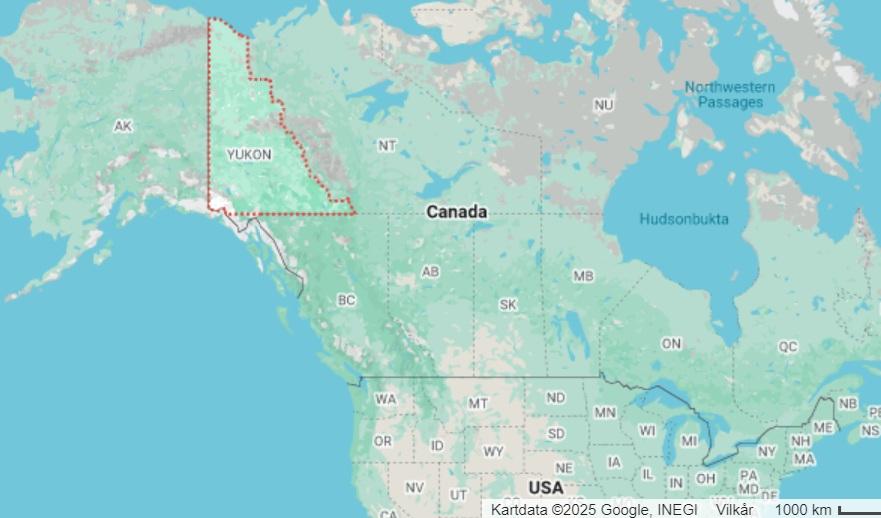
Yukon borders Alaska in the west and is the smallest of Canada's three northern territories, which also includes the Northwest Territories and further east, Nunavut, which is the largest and northernmost territory in Canada.
Impacts on the mining industry
Mining is a large economic driver for the territories in the North, with the mines operating in the Northwest Territories and Nunavut being the largest private sector contributors to each territory’s economy, according to a report from the Mining Association of Canada.
Mining company Agnico Eagle’s two active mines furthermore account for 22 percent of Nunavut GDP. The company employs over 3500 people, and is the Territory’s largest private sector partner.
Agnico Eagle has not responded to High North News' request for comments on how potential tariffs would impact the company's operations in Nunavut.
Peter Akman, Head of Communications at Baffinland, which operates the Mary River Mine in Nunavut, said the mining company's high-grade iron ore is currently only shipped to Europe. As such, the company does not foresee an immediate direct impact on their ore sales from tariffs on Canadian exports to the U.S.
"However, any retaliatory tariffs imposed by Canada on imported goods, including machinery, parts or food, or the indirect effect of U.S. tariffs on Canadian components used in the manufacturing of machinery and equipment, would affect our costs," Akman tells HNN.
Large economic driver
Mining, quarrying and oil and gas extraction were responsible for 15 percent of the GDP in the Yukon, 22 percent of GDP in the Northwest Territories, and 41 percent of GDP in Nunavut.
Concerns about countervailing tariffs
"A significant portion of our plants, equipment, and parts are sourced from U.S. based manufacturers. A 25 percent tariff on major components would impact the profitability of our current operations and capital projects. We will be evaluating moving our procurement of these key supplies to Europe and elsewhere," he added.
Akman also noted concerns about the impact of countervailing tariffs announced by the Government of Canada on food imports.
"Given that much of our food supply for our site workforce comes from or through the U.S., this could increase food prices for us and the residents of Nunavut as a whole. We are working with our suppliers to find alternate sources within Canada and elsewhere."
"We continue to monitor the situation closely to assess any potential financial impact on our supply chain and operations."
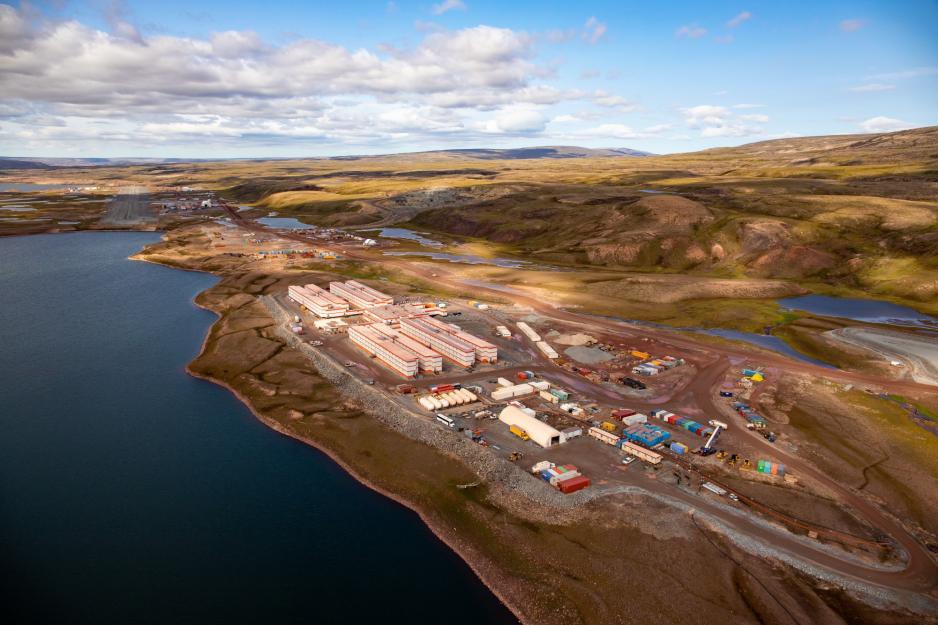
Mining company Baffinland's Mary River Mine is located on Baffin Island in Nunavut and is one of the northernmost mines in the world. (Photo: Baffinland).
A time to invest in the Arctic
In closing, Nunavut Premier Akeeagok noted the need to "do more than react," calling for increased investment in the northern economies.
"Canada’s Arctic is a region of opportunity, from critical minerals in our land to an abundance of fish in our waters, it’s time to invest in our own economy and communities. In a time of uncertainty, the Arctic can unlock new economic opportunities for our country," he said.
NWT Premier Simpson also highlighted that recent developments present an opportunity to strengthen the diversity of the economy, pointing among other things to promoting tourism, infrastructure projects, extraction of critical minerals and resources, as ways to explore sustainable economic growth.


